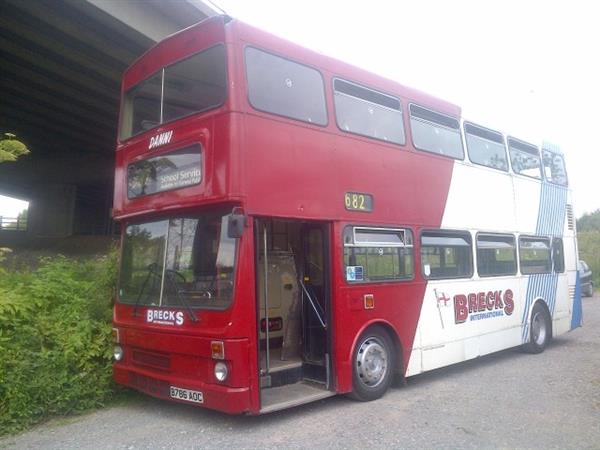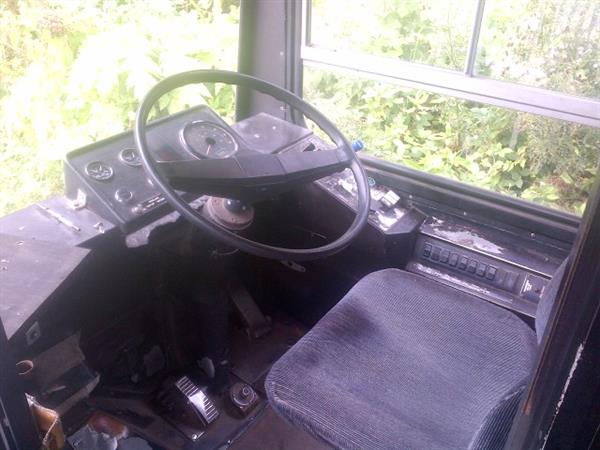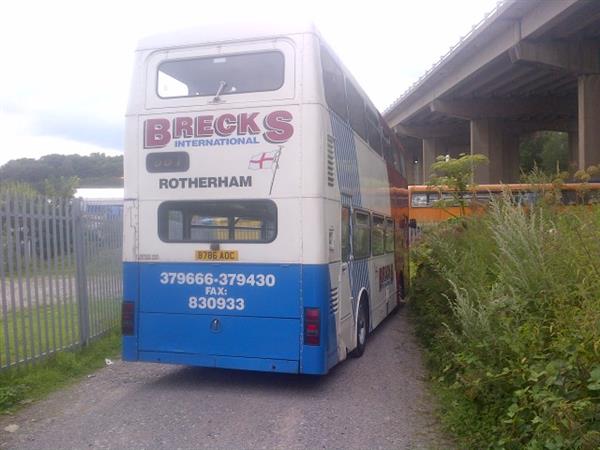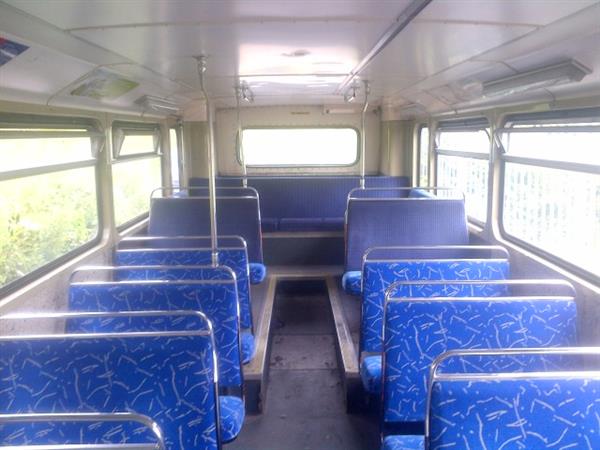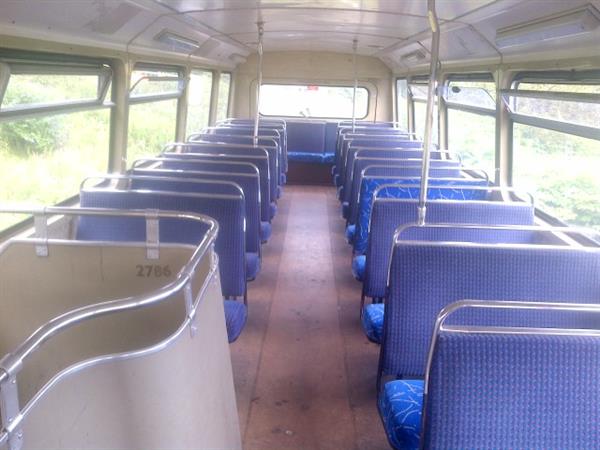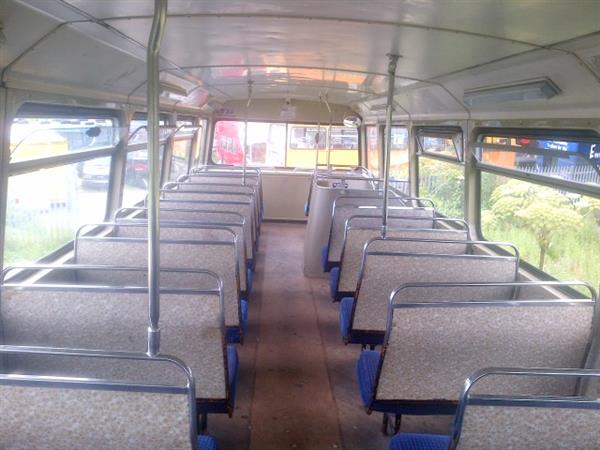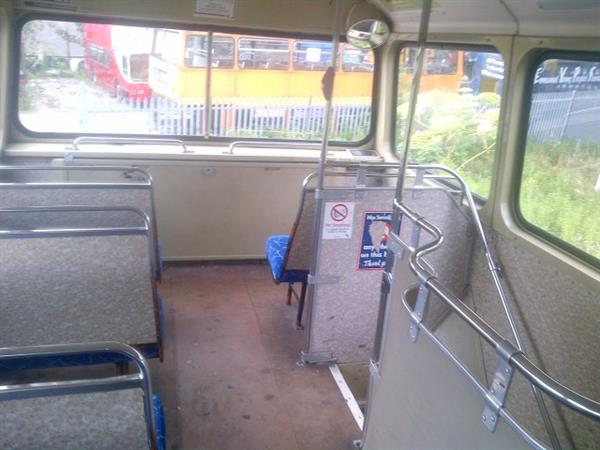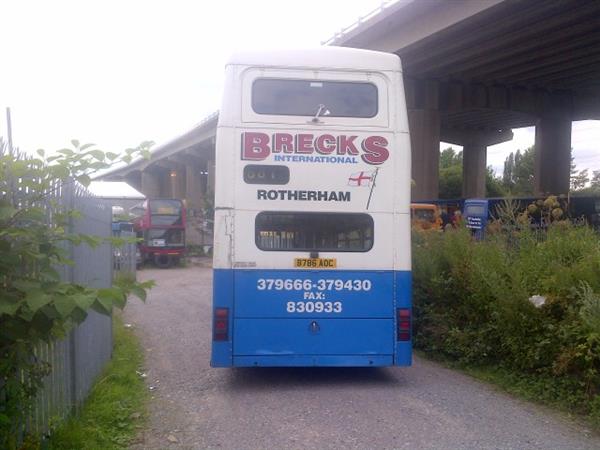Vehicle Details
MCW METROBUS
£3500

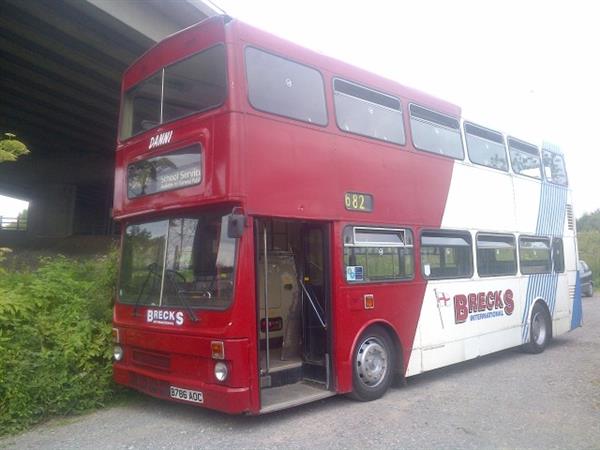
EX WEST MIDLANDS METROBUS
MECHANICALLY VERY GOOD, DRIVE ANYWHERE (BRIDGE HEIGHT PERMITTING)
COSMETICALLY NOT SO GOOD, HENCE PRICE
IDEAL FOR PRESERVATION OR AS A SCHOOL STATIC UNIT, LIBRARY
,CLASSROOM ETC.
VIEW IN WARRINGTON
DELIVERY UP TO 100 MILES FROM HERE FREE OF CHARGE
THE HISTORY OF THE DEVELOPMENT OF THE WEST MIDLANDS (WMPTE)
MCW METROBUSES CAN BE FOUND ON WIKIPEDIA.
MCW IS THE ABBREVIATION FOR METRO CAMMELL WEYMANN
The MCW Metrobus is a double decker busmodel manufactured byMetro Cammell Weymann (MCW) between 1977 and 1989, with over 4,000 examples built. The original MkI model was superseded by the MkII model (which had a symmetrical windscreen) in 1981
The West Midlands PTE and its successor, West Midlands Travel, also purchased significant numbers of Metrobuses (over 1,100), both MkI and MkII examples. These included five prototype vehicles (allocated to Washwood Heath depot near the MCW factory so they could see the vehicles performance in service) and 50 dual-purpose Metrobuses with high-back seats, purchased in 1986. Many of these buses were converted to normal seated buses and continued in service until November 2008. They were mainly used on limited-stop services. Fourteen guided buses were delivered for route 65 (brandedTracline 65), which was the first guided bus system in UK, although the experiment only lasted a couple of years.[2] All of the 14 guided buses were converted for conventional use.
In early 1995 Marshall Bus of Cambridge were contracted to overhaul all of West Midland Travel's Metrobus fleet. This was the largest used bus overhaul programme in Europe at the time and Marshalls set up a dedicated business division and staff to handle it. Many unavailable parts had to be sourced and made to original patterns by the Marshall procurement team. A production line was established in one of Marshall's aircraft hangars and anything up to 30 Metrobuses could be found in work at some stage along the line. Duration of refurbishment of each bus was usually 2-3 per week. No powerline items were included with the result that original engines were simply put back in the overhauled buses as they were. This had the effect that as the vehicles were driven from the West Midlands to Marshalls at Cambridge and driven back once completed, they frequently broke down. Over 600 mainly MkII metrobuses were overhauled and the contract ended abruptly in 1999 due to lack of confidence in Marshall Bus over delays with WMT orders for their new single deck buses. As a result of the unique experience gained by Marshall Bus on the Metrobus programme, they won a similar contract to overhaulTransport for London AEC Routemasters starting in 1999.
The last public service ran the 1 service from Birmingham Town Hall to Acocks Green Village, arriving back at Acocks Green Garage at 15:25 on 24 July 2010 and was bus 2903 C903FON. A Metrobus Farewell event was held at Acocks Green on that day and all three of the last Metrobuses were operated, these were 2832, 2903 & 2988 (B832AOP, C903FON & E988VUK). All cash fares taken on the day were donated to Cancer Research UK.
Please note that unless otherwise stated, all commercial vehicles sold in UK or EU are subject to VAT at the current rate. VAT is not payable on exports to non EU countries provided proof of export is provided in the form of a shipping bill of lading.
